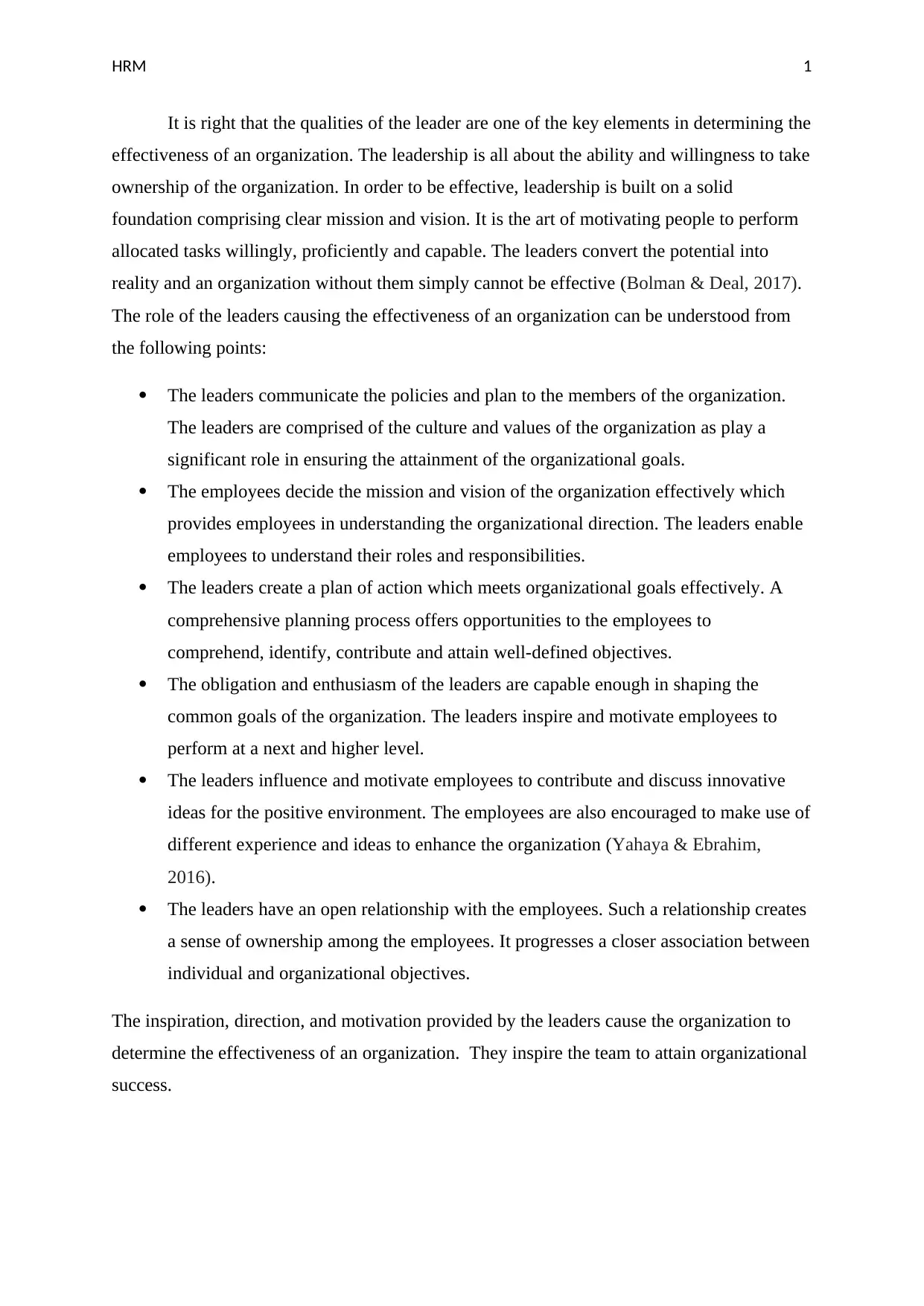HRM 0: Analyzing Leadership's Impact on Organizational Effectiveness
VerifiedAdded on 2023/04/25
|3
|442
|383
Report
AI Summary
This report examines the crucial role of leadership in determining organizational effectiveness. It highlights how leaders communicate organizational policies and visions, create actionable plans, and foster employee motivation and engagement. The report emphasizes the importance of clear goals, open communication, and the development of a sense of ownership among employees. It also discusses how leaders inspire and motivate employees, encouraging innovative ideas and utilizing diverse experiences to enhance the organization's performance. The report references Bolman & Deal (2017) and Yahaya & Ebrahim (2016) to support its arguments, emphasizing the impact of leadership on organizational success and the attainment of strategic goals. This assignment is contributed by a student to be published on the website Desklib, a platform which provides all the necessary AI based study tools for students.
1 out of 3









![[object Object]](/_next/static/media/star-bottom.7253800d.svg)